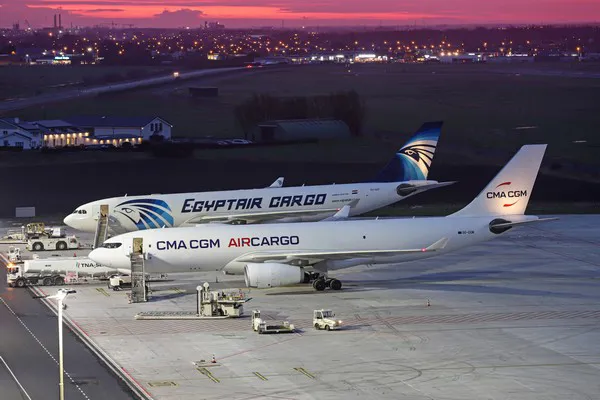The Egyptian strawberry season kicked off last week with limited volumes and accompanying high prices, but the pressure seems to have eased in the market since yesterday, says Alain Tulpin of logistics service provider Tulpin Group. "The season started a bit later this year, but starting later isn't a disaster, of course. In fruit and vegetables, no two years are ever the same. Now that volumes are coming into the market, prices will begin to normalize."

"It's not rocket science," Alain continues. "I was in Egypt at the end of September, and it was still 40 degrees in the shade. You simply can't plant strawberries in those conditions because the soil temperature reaches 60 degrees. If you plant strawberries in such heat, you can water them as much as you want, but the plants will be dead the next day. They had to wait, and with a 14-day delay in planting, it makes sense that the harvest would be 14 days late. It's part of the nature of agriculture. It happens with Conference pears as well—sometimes harvested on August 15, other years in early September. These delays often make people nervous, but if the product isn't there, it just won't come. We've seen the same with Canary Tomatoes, which were also 14 days late. What can you do about it?"
"Prices are very high initially, but that's how trade works," he explains. Alain doesn't expect this trend to persist throughout the season. "We received the first shipment on November 25, but since yesterday, volumes have really picked up, with at least 200 to 250 tonnes arriving daily. The quality is good, and overall, I don't see much difference in volume compared to other years. There's talk in Egypt about reduced volumes, but that mainly comes from independent growers who sell to exporters and try to influence the market. Growers who manage their own operations report having sufficient supply."
This period marks the peak season for Egyptian strawberries until Spain enters the market. Tulpin Group mainly ships the fruit to England, the Netherlands, and Ireland. "Demand is still slightly subdued in the first week of December due to Sinterklaas celebrations, as people want to save money for the holidays. However, things are starting to pick up. It's difficult to predict, though. In Huelva, Spain, heavy rains haven't significantly impacted the harvest, as many growers hadn't planted yet, meaning Spain won't enter the market very early. Morocco also hasn't planted much in recent years due to poor returns. Some strawberries are coming from southern Morocco, but not enough to disrupt the market. Morocco has shifted more toward raspberries and blueberries. So, there will still be plenty of room for a successful Egyptian strawberry season. Starting a little later isn't a disaster. What happened in Valencia, however, is a real disaster."

Photo Nik Deblauwe
E-commerce disrupts the aviation market
Alain notes significant challenges ahead in air freight. "Air freight rates have skyrocketed, and this trend will continue. Everyone is holding their breath to see what will happen now that Trump has won. In Europe, every shipment above €22 requires a clearance, and import duties apply from €150, but in the U.S., the threshold is still €800. If Trump lowers this threshold, we'll have to see how China reacts—whether they shift their focus to Europe."
"Chinese e-commerce is reshaping the logistics landscape. Fifty 747 planes filled with e-commerce goods depart China daily. We're already seeing some impact in Egypt, but it's more pronounced in countries like Kenya. This surge in demand distorts the air freight market significantly. Every day, 500 million parcels are shipped, putting immense pressure on freight rates. I expect Europe will eventually impose limits, but until then, we'll have to navigate this challenging environment," Alain concludes.
For more information:
Alain Tulpin
Tulpin Group
+32(0) 59 80 66 33
[email protected]
www.tulpingroup.eu
